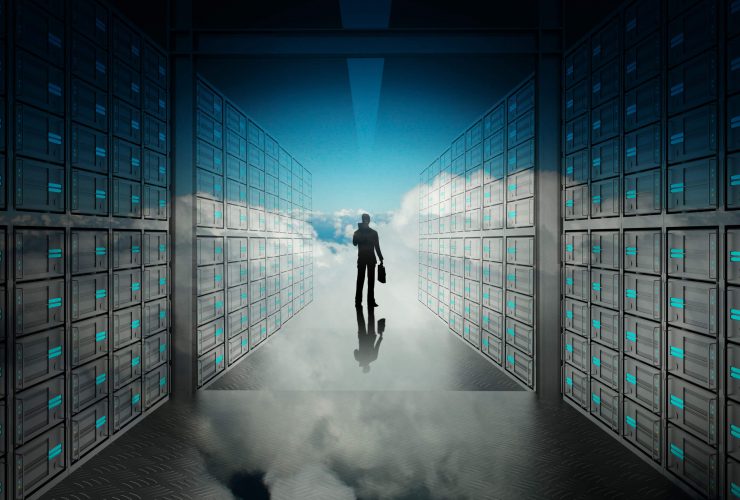Enterprise Resource Planning (ERP) integrates different aspects of a company to improve the overall efficiency and functionality of the business.
It provides the business with a single platform that can be used across various departments, so everyone can work together using the tools that have been created, especially for each department.
Departments can also share information and data in real-time in a much more synchronized manner to make all business processes much more efficient.
Cloud vs Legacy
With thousands of ERP solutions currently available on the market today, many competitive products prove to be both innovative and functional. So, how do you narrow down your choices and find what works best?
Cloud-Based ERP
When it comes to a cloud-based ERP system, you have a more limited scope of choices available. Let’s take a look at the differences between a cloud-based ERP and Legacy ERP.
No On-Premises Installation
A cloud-based ERP does not require any on-premises installation. Instead, everything is hosted on third-party servers in the cloud. This translates into much lower operating costs as there is no manual and regular maintenance needed to keep up with on-premises software and hardware.
Cloud vendors like Cloud One provide ERP solutions and SAP Business One cloud computing services like Software-as-a-Service (SaaS). It is affordable and can typically be customized to work around any company budget you may have.
Longevity
Cloud-based ERP solutions have been developed using some of the more popular web-based tools available, including java and html. These tools will always be around, meaning cloud-based ERP solutions will always be available and relevant.
Cut Down on Time
When switching to a cloud-based ERP solution, you will find little to no downtime. It is a pre-built solution to integrate business operations under one umbrella. As long as you have internet, you can access all your data and information in real-time, any time you want, and from any location. You can rest assured that everything is always going to be up to date and available.
You will also find that all the applications of your cloud-based ERP are automatically updated and maintained, so you don’t have to worry about anything. This all makes it a very cost-effective way to manage your operations more efficiently.
Want to hear more? Contact us
Legacy ERP
Legacy ERP is an older enterprise software solution that is no longer being enhanced. It was first created in the 1980s and is wholly based on older technology like the IBM AS/400 platform.
However, the Legacy ERP solution is still being used today because it continues to meet the needs it was established for. However, there is no room for growth, and it cannot interact with any newer systems.
Requires On-Premises Installation
Unlike a cloud-based ERP, a Legacy ERP does require on-premises installation for it to work. IT needs to use your hardware infrastructure and cannot be run through a third-party vendor. If you need any third-party integrations accomplished, you must do so through manual installations involving CDs.
Takes Time
A Legacy ERP also requires a certain time commitment as well. It takes time to properly implement everything, and everything also needs to be manually integrated, including accounting, marketing, eCommerce, and more.
Manual Upgrades
You will also find that this ERP solution requires manual upgrades every once in a while, which requires time and money. The system is old and cannot automatically update the software as a cloud-based ERP solution can, making it a not so cost-effective option for business.
Other Considerations
Now that we have covered some of the differences between the two solutions, let’s take a look at some other factors that should be considered before deciding which would be best for your business.
Mobile Access
Cloud-based ERPs are available through a web browser, so you can use any computer or mobile device to access them. Many vendors also have apps that make this easier. On-premises ERPs like the Legacy ERP only exist within your office walls. There is no mobile access available.
Data Security
With a cloud-based ERP, you are storing your data on a server you don’t actually own. However, reputable cloud vendors are on top of security and do what needs to be done to keep your data safe and secure. A lot of time and effort are invested in data encryption and other security solutions.
With a Legacy ERP, you do have full control over your data because the data only exists in a server that is directly under your control. However, it is up to you to keep that data safe by implementing the right security solutions.
So, when it comes to the cloud-based ERP vs Legacy ERP debate, you need to consider the needs of your business. If you are looking for a cost-effective solution that can be scaled as your business grows and customized to your needs, then a cloud-based ERP solution is exactly what you need.
For more information about cloud-based ERP solutions and to see how cloud hosting can be the right move for you, contact Cloud One or request a demo today.





